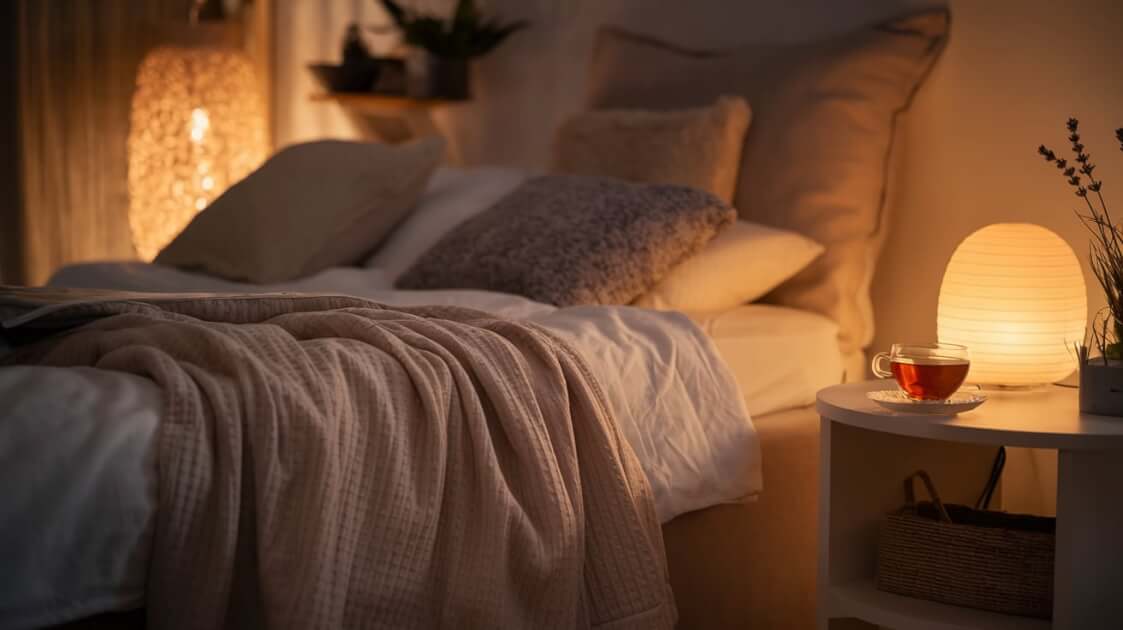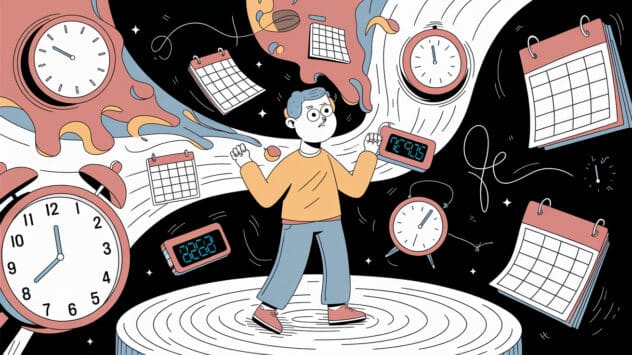ADHD and Autism Sleep Tips: Mastering Your Circadian Rhythm
Ah, sleep. That elusive state that seems to come so easily to some, yet remains a nightly battle for many. If you’re navigating life with ADHD, autism, or both (the delightful combo known as AuDHD), your circadian rhythm, the internal clock that dictates when you should sleep and wake, might be running in an entirely different time zone. But don’t worry! This guide is packed with ADHD and autism sleep tips to help you outsmart your rogue body clock and finally get some proper rest.
Light: Your Frenemy
Light exposure tells your body when to wake up and when to wind down, but let’s be honest, our brains didn’t get the memo. Time to take control.
Morning Sunlight: The Cheapest Sleep Aid
Neurotypical sleep experts love to say “just get some sunlight in the morning,” as if that’s not the hardest thing in the world when you’ve spent all night thinking about whether penguins have knees. But seriously, just five minutes of natural light in the morning can help reset your body clock.
Unlock peak brain performance with science-backed biohacks. Join free now & get your guide for just £4.99 (45% off)!

Hack: Stand by a window, walk outside, or, if you’re really struggling, scroll your phone in the garden. It still counts.
Blue Light at Night: The Ultimate Sleep Thief
Phones, laptops, and TVs blast blue light straight into your retinas, tricking your brain into thinking it’s daytime.
Hack:
- Use blue light filters or switch to night mode on your devices.
- Dim your screen or, dare I say it, read an actual book. Yes, Kindles still count as screens.
- Consider blue-light blocking glasses if you’re not ready to give up bedtime scrolling just yet.
Red Light: The MVP (Most Valuable Player) of ADHD and Autism Sleep Tips
Unlike blue light, red or amber lighting doesn’t suppress melatonin production. This is why candlelight and sunsets feel so relaxing.
Hack: Swap your bedroom bulbs for red or warm-toned lights in the evening, and your brain might actually start cooperating.
Tricking Your Brain Into Sleeping (Even When It Refuses)
Stick to a Sleep Schedule (Even Though Routine is Hard)
If you keep changing your sleep time, your brain gets confused. Sticking to the same bedtime and wake-up time trains your body to expect sleep, even if your executive dysfunction would rather watch Netflix until sunrise.
Hack: Set an alarm to go to bed, not just to wake up. Yes, this is boring. But it works.
The Wind-Down Ritual (Your Brain Needs a Cue to Sleep)
Ever tried to go straight from scrolling TikTok to sleeping? Yeah, doesn’t work. Creating a pre-sleep routine tells your brain it’s time to switch off.
Hack:
- Same podcast every night, your brain starts associating it with sleep.
- Hot shower or bath, lowers body temperature after, which makes you sleepy.
- Gentle stretching or deep breathing, it actually helps.
Bed = Sleep (Not a Snack and YouTube Cave)
If your bed is where you scroll, snack, stress, and solve the meaning of life, your brain forgets it’s also where sleep happens.
Hack: Keep your bed a sleep-only zone, or at least a mostly sleep zone. Or read ADHD and Autism sleep tips.
Temperature Tweaks: Be a Sleep Scientist
Cool Down for Better Sleep
Your body needs to drop in temperature to fall asleep. If your room is too warm, you’ll be tossing and turning for hours.
Hack:
- Crack a window or use a fan.
- Try a cooling blanket.
- Take a hot shower before bed, your body cools down afterwards, which signals sleep mode.
Weighted Blankets: Instant Calm
For those of us who feel like our limbs might float away at night, weighted blankets can be a game-changer.
Hack: If a full-sized weighted blanket feels like overkill, try a weighted lap pad or even just a heavy duvet.
Food and Caffeine: The Subtle Sleep Saboteurs
Caffeine Curfew (Yes, This Includes Tea)
ADHD brains love caffeine, but drinking it past 3 p.m. is asking for trouble.
Hack: If you must have a warm drink at night, try decaf or herbal tea. No, crying into a mug of chamomile isn’t required. Maybe more ADHD and Autism sleep tips might help you sleep. You’re welcome.
Blood Sugar Rollercoaster = Sleep Disaster
If your blood sugar spikes and crashes before bed, your body panics and wakes up hungry.
Hack: Eat a small protein-rich snack before bed, cheese, nuts, or even a spoonful of peanut butter works wonders.
Magnesium: The Secret Sleep Booster
Magnesium helps relax your nervous system and many neurodivergent people are low in it.
Hack: Magnesium-rich foods include dark chocolate, nuts, and bananas, which is a great excuse to eat chocolate before bed.
Sleep Supplements: Do They Help?
Melatonin: The Missing Ingredient?
Some neurodivergent people don’t produce enough melatonin naturally, making sleep even harder. A low-dose supplement can help, but check with a doctor first.
Hack: Melatonin is best used to reset your sleep cycle, not as an every-night solution.
Herbal Sleep Aids
Chamomile, valerian root, and lavender can help promote relaxation.
Hack: Hate herbal tea? Try a lavender pillow spray instead. Same benefits, no weird taste.
Work With Your Chronotype (Instead of Fighting It)
Let’s be real: not everyone is built to be a morning person. Some of us are naturally night owls, and that’s fine.
Hack: If you can, shift your schedule slightly to match your natural rhythm instead of forcing yourself into a 6 a.m. routine that only leads to resentment and ten alarms.
Final Thoughts: Sleep is a Work in Progress
Fixing your sleep isn’t about perfection, it’s about small, sustainable changes. Some nights will still be a mess, but with the right circadian rhythm hacks, you can stack the odds in your favour.
So go forth, outsmart your rogue body clock, and may your sleep be deep, your mornings slightly less painful, and your existential 3 a.m. thoughts mildly less intense.
Join our community to discover more ADHD and Autism Sleep Tips, neurodivergent-friendly hacks, share your experiences, and connect with people who actually get it.







